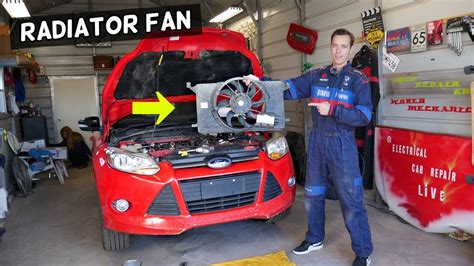Radiator Fan Removal: Prevent Overheating – A Comprehensive Guide
Overheating is a serious issue for any vehicle, and the radiator fan plays a crucial role in preventing it. While removing the radiator fan might seem like a simple way to improve airflow or for aesthetic reasons, it significantly increases the risk of overheating, especially under demanding conditions. This comprehensive guide will explore the importance of the radiator fan, the potential consequences of its removal, and steps to prevent overheating should you decide to proceed despite the risks. We'll also address common questions surrounding this modification.
Why is the Radiator Fan Important?
The radiator fan is a vital component of your vehicle's cooling system. Its primary function is to draw air through the radiator, dissipating heat from the coolant and preventing engine overheating. At low speeds or during idling, the airflow created by the vehicle's forward motion isn't sufficient to cool the engine adequately. This is where the radiator fan steps in, ensuring consistent cooling even when the vehicle is stationary or moving slowly.
What Happens if You Remove the Radiator Fan?
Removing the radiator fan dramatically reduces the cooling capacity of your engine, particularly in stop-and-go traffic or hot weather. The consequences can range from minor performance degradation to catastrophic engine failure. Here's a breakdown:
- Increased Risk of Overheating: This is the most significant consequence. Without the fan, the radiator relies solely on the vehicle's speed for airflow. At low speeds or when idling, the engine will struggle to dissipate heat, leading to overheating and potential damage.
- Reduced Engine Performance: Overheating reduces engine efficiency, leading to power loss and sluggish acceleration.
- Engine Damage: Severe overheating can cause warped cylinder heads, cracked engine blocks, and damage to other vital engine components, resulting in costly repairs or even a complete engine replacement.
Can I Remove the Radiator Fan and Still Prevent Overheating?
Removing the radiator fan and preventing overheating are mutually exclusive goals. While some modifications might mitigate the risks to a degree, they don't eliminate them. You cannot reliably replicate the function of the radiator fan without it. Any attempt to do so involves significant compromises and increased risk.
What are the Alternatives to Radiator Fan Removal?
If you're seeking improved airflow for performance reasons, consider these alternatives:
- Upgraded Radiator: A larger or higher-efficiency radiator will improve cooling capacity without sacrificing the crucial function of the fan.
- Improved Coolant: Using a high-quality coolant with appropriate antifreeze concentration enhances heat transfer efficiency.
- Performance Cooling System: Investing in a complete performance cooling system, which might include a larger radiator, upgraded fan, and improved hoses, offers a much safer and more effective solution for improved cooling.
What if My Radiator Fan is Malfunctioning?
Instead of removing a malfunctioning fan, address the underlying issue. A faulty fan can be repaired or replaced. Ignoring a malfunctioning fan is far riskier than replacing it.
How Can I Monitor My Engine Temperature After Removing the Radiator Fan (Not Recommended)?
Even if you choose to remove the radiator fan (strongly discouraged), consistent monitoring of your engine temperature is crucial. Use an accurate temperature gauge to track the engine's temperature, particularly during periods of low speed or high ambient temperature.
What are the Legal Implications of Removing the Radiator Fan?
Removing the radiator fan might void your vehicle's warranty and could potentially lead to legal issues if it causes an accident. Consult your local regulations for specific information.
Conclusion
Removing the radiator fan is a modification that significantly increases the risk of engine overheating and damage. The potential consequences far outweigh any perceived benefits. If improved cooling is necessary, explore safer and more effective alternatives. Prioritize the health and longevity of your engine by maintaining a properly functioning cooling system.

